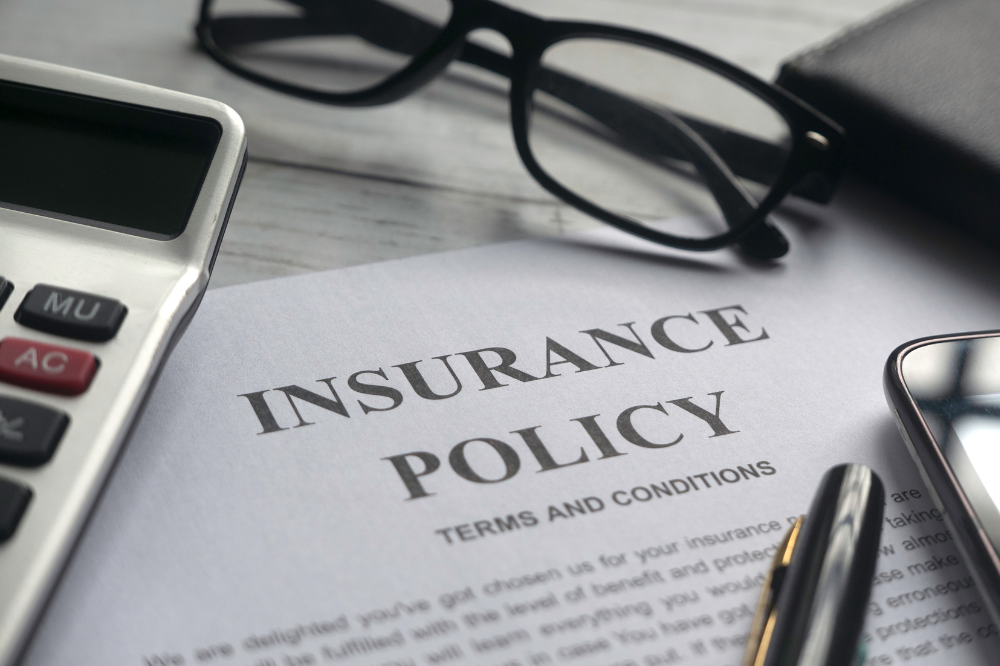How does renters insurance work?
Renters insurance protects tenants from damage to their personal property or from liability in case someone is injured while on the property. It is a type of insurance that is provided by an insurance company and which covers the renter’s belongings and provides liability coverage. There are different types of renters insurance policies, but most of them provide coverage for the tenant’s personal belongings and also provide liability coverage in case someone is injured while on the property. Some renters insurance policies also cover the cost of alternative living arrangements if the rental unit becomes uninhabitable due to a fire or other covered event.
What does renters insurance cover?

Renters insurance is a type of insurance that helps to protect tenants from financial losses in the event that their rental property is damaged or destroyed. Most renters insurance policies cover the cost of repairs or replacement of personal belongings, as well as liability in the event that someone is injured on the property. Some insurance companies also offer additional coverage for expenses such as temporary housing in the event that the rental unit is uninhabitable. While renters insurance is not required by law, it is often required by landlords as a condition of renting. For tenants, it provides peace of mind in knowing that they are protected in case of an unforeseen disaster.
How much does renters insurance cost?

Renters insurance is a policy that helps protect your belongings in the event of damage or theft. It can also provide liability coverage if someone is injured while on your property. The cost of renters insurance varies depending on the insurance company and the amount of coverage you need. However, the average cost of a renters insurance policy is around $15 per month. That means for just a few dollars a month, you can have peace of mind knowing that your belongings are protected.
Do I need renters insurance?
Considering renters insurance? You’re not alone. A lot of people ask themselves whether they need renters insurance coverage. The truth is, it depends on a variety of factors. One thing to consider is the coverage limits. If you have expensive personal property, you may want to insure it in case it’s damaged or stolen. Another thing to consider is whether your landlord requires renters insurance. Some landlords do, and some don’t. Ultimately, it’s up to you to decide whether renters insurance is right for you. But if you’re looking for peace of mind, it may be worth considering.
10 factors to consider while getting renters insurance policy
The average person spends about $1,200 a year on rent, which is a significant investment. That’s why it’s important to have renters insurance to protect your belongings and give you peace of mind in case something happens.

There are a lot of factors to consider when getting a renters insurance policy, such as what type of coverage you need and how much you’re willing to spend. Here are 10 things to keep in mind when shopping for renters insurance:
1. Coverage Limits
Your renters insurance policy will have coverage limits, which is the maximum amount that the insurer will pay out for a claim. Make sure to choose a limit that covers the value of your belongings.
2. Deductible
Your deductible is the amount you have to pay out-of-pocket before your insurance policy kicks in. The higher your deductible, the lower your premium will be. But make sure you can afford to pay the deductible if you need to file a claim.
3. Replacement Cost Vs Actual Cash Value
Most policies will reimburse you for the replacement cost of your belongings, which is what it would cost to buy brand new items. But some policies will only pay out based on the actual cash value of your belongings, which takes into account depreciation.
4. Personal Liability Coverage
Personal liability coverage protects you from lawsuits if someone is injured while in your home or if you damage someone else’s property. Make sure to choose a limit that will protect your assets in case you’re sued.
5. Guest Medical Protection
Guest medical protection pays for the medical expenses of anyone who’s injured while on your property. This is especially important if you have kids or if you entertain guests often.
6. Additional Living Expenses
If your home is uninhabitable because of a covered event, additional living expenses coverage will reimburse you for the cost of temporary housing, such as a hotel room.
7. Personal Property Coverage
Personal property coverage protects your belongings from events like fire, theft, and vandalism. Make sure to choose a limit that covers the value of all your belongings.
8. Valuables Coverage
Valuables coverage is for high-priced items like jewelry, art, and electronics. Most policies have limits for each type of item, so you may need to purchase additional coverage for your valuables.
9. Sewer and Drain Backup Coverage
If your home floods because of a sewer or drain backup, this coverage will reimburse you for the damage. This is an important rider to have if you live in an area prone to flooding.
10. Discounts
Many insurers offer discounts on renters insurance premiums, so be sure to ask about any that you may qualify for. Some common discounts include multi-policy discounts, claim-free discounts, and loyalty discounts.
Shopping for renters insurance can be daunting, but it’s important to find a policy that fits your needs and budget. Keep these 10 things in mind when you’re looking for a policy, and you’ll be sure to find the right coverage for you.
How do I get renters insurance?
Although renters insurance is not required by law, it is still a good idea to purchase a policy if you are renting an apartment or home. Renters insurance will protect your belongings in the event of a fire, theft, or other covered disaster. It can also provide liability coverage if someone is injured while on your property.
There are many renters insurance companies to choose from, so it is important to compare rates and coverage options before buying a policy. You can get quotes from different companies online or by speaking with an insurance agent. Once you have found the right policy for your needs, you can purchase renters insurance by paying the premium in full or setting up monthly payments.
5 major renters insurance companies

If you’re looking for a good renters insurance policy, you should check out some of the top companies in the industry. Here are five of the best:
1. State Farm:
State Farm is one of the largest and most well-known insurance companies in the United States. They offer a wide variety of coverage options and have an excellent reputation for customer service.
2. Allstate:
Allstate is another large insurance company that offers renters insurance policies. They also have a good reputation for customer service and offer a variety of coverage options.
3. Farmers:
Farmers is a smaller insurance company, but they offer some great coverage options for renters. They’re also known for their excellent customer service.
4. Liberty Mutual:
Liberty Mutual is a large insurance company that offers a variety of coverage options. They’re known for their competitive pricing and have a good reputation for customer service.
5. USAA:
USAA is a unique insurance company because they only insure members of the military and their families. However, they offer great coverage options and have an excellent reputation for customer service.
Tips for choosing the best renters insurance policy for you

Renters insurance is a type of property insurance that protects your belongings in the event of damage or theft. It also provides liability coverage in the event that someone is injured while on your property. Choosing the right renters insurance policy can be tricky, but it doesn’t have to be. Here are 10 tips for choosing the best renters insurance policy for you:
1. Know what your policy covers.
Most renters insurance policies will cover your personal belongings in the event of damage or theft. However, there may be some exclusions, so it’s important to know exactly what your policy covers. For example, some policies won’t cover items that are considered high-risk, such as firearms or jewelry.
2. Consider your deductibles.
Your deductible is the amount of money you’ll have to pay out of pocket in the event of a claim. The higher your deductible, the lower your premium will be. However, you’ll want to make sure you can afford your deductible in the event that you need to file a claim.
3. Choose replacement cost coverage.
Replacement cost coverage will reimburse you for the cost of replacing your belongings, regardless of their actual value. This is different from actual cash value coverage, which only reimburses you for the depreciated value of your belongings. Replacement cost coverage is typically more expensive, but it’s worth it if you have valuable items.
4. Don’t skimp on coverage.
It’s important to make sure you have enough coverage to protect your belongings. However, don’t get more coverage than you need, as this will just increase your premium unnecessarily.
5. Get quotes from multiple insurers.
When shopping for renters insurance, be sure to get quotes from multiple insurers. This way, you can compare prices and coverage options to find the best policy for you.
6. Read the fine print.
Before you purchase a policy, be sure to read the fine print so you understand exactly what is and isn’t covered. This will help you avoid any surprises down the road.
7. Ask about discounts.
Many insurers offer discounts for things like installing security systems or smoke detectors. Be sure to ask about any discounts that may be available to you.
8. Consider bundling your policies.
If you purchase your renters insurance from the same company that insures your car, you may be eligible for a discount. This is because insurers often offer discounts for bundling multiple policies together.
9. Review your policy annually.
Your needs may change over time, so it’s important to review your renters insurance policy on an annual basis. This way, you can make sure you’re still getting the best coverage for your needs.
10. Shop around.
When it comes time to renew your policy, don’t automatically renew with your current insurer. Instead, shop around and compare rates to make sure you’re still getting the best deal.
By following these tips, you can be sure you’re choosing the best renters insurance policy for your needs.
What is standard renters insurance policy
A standard renters insurance policy usually covers 3 main areas: personal property, liability, and additional living expenses.
Personal property coverage usually protects your belongings in the event that they are damaged or stolen. This can include items like furniture, clothing, electronics, and more.
Liability coverage helps to protect you in the event that someone is injured while on your property. This can include accidents like slip and falls.
Additional living expenses coverage can help to cover the cost of things like hotel stays if you are forced to evacuate your home due to a covered event.
Renters insurance policies typically have a limit on the amount of coverage for each type of protection. That means it’s important to understand what your policy covers and to make sure you have adequate coverage for your needs.
What is renters insurance liability coverage
When you rent a home or apartment, your landlord’s insurance Typically, this will cover the building itself in case of damage from a fire or severe weather. However, it does not cover your personal belongings or liability in case someone is injured while on your property. That’s where renters insurance comes in. Renters insurance liability coverage protects you from financial responsibility if someone is hurt while on your property. It can also help to replace your belongings if they are damaged or stolen. While your landlord’s insurance may provide some protection, it’s important to have your own renters insurance policy to make sure you are fully covered.
How to deal with insurance representative? Dos and Donts
When you are dealing with an insurance representative, there are a few things you should keep in mind.
First and foremost, be polite and respectful. Remember that the person you are talking to is most likely just doing their job, so there is no need to be rude or uncooperative. Secondly, be as clear and concise as possible when explaining your situation.
The more information the insurance representative has, the better they will be able to help you. Finally, be patient; insurance representatives often have to deal with a lot of people, so it may take them a little while to get back to you. If you follow these tips, you should have no trouble getting the help you need from your insurance representative.
How does renters insurance compare to other types of insurance?
There are a few different types of insurance that renters can choose from, and each has its own advantages and disadvantages. Here’s a quick overview of how renters insurance compares to some of the other most popular options:
– Homeowners insurance:
Homeowners insurance covers the structure of your home as well as your personal belongings, but it doesn’t typically cover liability or medical expenses. It also generally has a higher premium than renters insurance.
– Auto insurance:
Auto insurance covers your car, but it won’t cover your personal belongings or liability. It also typically has a higher premium than renters insurance.
– Health insurance:
Health insurance covers your medical expenses, but it won’t cover your personal belongings or liability. It also typically has a higher premium than renters insurance.
– Life insurance:
Life insurance covers your death, but it won’t cover your personal belongings or liability. It also typically has a higher premium than renters insurance.
Renters insurance is a great option for people who want coverage for their personal belongings and liability, but don’t want to pay the high premiums of other types of insurance. It’s important to compare different policies and find the one that best fits your needs.
There are a few different types of insurance that renters can choose from, and each has its own advantages and disadvantages. Here’s a quick overview of how renters insurance compares to some of the other most popular options:
– Homeowners insurance:
Homeowners insurance covers the structure of your home as well as your personal belongings, but it doesn’t typically cover liability or medical expenses. It also generally has a higher premium than renters insurance.
– Auto insurance:
Auto insurance covers your car, but it won’t cover your personal belongings or liability. It also typically has a higher premium than renters insurance.
– Health insurance:
Health insurance covers your medical expenses, but it won’t cover your personal belongings or liability. It also typically has a higher premium than renters insurance.
– Life insurance:
Life insurance covers your death, but it won’t cover your personal belongings or liability. It also typically has a higher premium than renters insurance.
Renters insurance is a great option for people who want coverage for their personal belongings and liability, but don’t want to pay the high premiums of other types of insurance. It’s important to compare different policies and find the one that best fits your needs.
Do renters insurance covers all your possessions and hotel bills?
Renters insurance covers your possessions in the event that they are damaged or stolen, as well as any hotel bills you may incur if your home becomes uninhabitable. It is important to note, however, that renters insurance does not cover damage caused by natural disasters. For this reason, it is always a good idea to have additional coverage in place if you live in an area susceptible to hurricanes, floods, or earthquakes.
Renters insurance policies
Renters insurance is vital protection for anyone who rents their home. It can help cover the cost of repairs or replacement if your belongings are damaged or destroyed, and it can also provide financial assistance if you’re forced to evacuate your home due to an unforeseen disaster.
There are several types of renters insurance policies available, so it’s important to choose one that fits your specific needs. Here are five of the most popular types of renters insurance:
1. Standard Renters Insurance:
This type of policy covers the basics, such as damage to your personal belongings and liability protection in case someone is injured while on your property.
2. Extended Renters Insurance:
An extended policy typically adds coverage for things like natural disasters, theft, and water damage.
3. Luxury Renters Insurance:
If you have high-value items such as jewelry or art, you may want to consider a luxury policy, which offers coverage beyond what a standard policy provides.
4. Temporary Renters Insurance:
If you’re only renting for a short period of time, you may be able to get temporary renters insurance, which will provide coverage for the duration of your stay.
5. Roommate Renters Insurance:
If you live with roommates, you may want to get a roommate policy, which covers each person’s belongings as well as liability protection.
Do buying renters insurance worth it?
When you’re renting an apartment, it’s important to protect your belongings in case of an emergency, such as a fire or theft. One way to do this is by buying renters insurance. Although it may seem like an unnecessary expense, renters insurance can actually be quite affordable, and it can provide peace of mind in knowing that your belongings are protected.
In addition, many landlords require their tenants to carry renters insurance, so it’s worth checking into whether or not your landlord has this requirement. Ultimately, whether or not you decide to buy renters insurance is up to you, but it’s something worth considering if you want to protect your investment.
Bottom Line
So, do renters insurance policies cover all of your possessions and hotel bills if something unfortunate were to happen? The answer is not a simple yes or no. While most standard renters insurance policies do include some liability coverage, it’s important that you read the fine print to understand what is and isn’t covered in case of an emergency. And as with any type of insurance policy, it’s always a good idea to shop around and compare rates before purchasing. Still wondering if buying renters insurance is worth it? At the very least, it can give you peace of mind knowing that you’re protected in case the unexpected happens.











